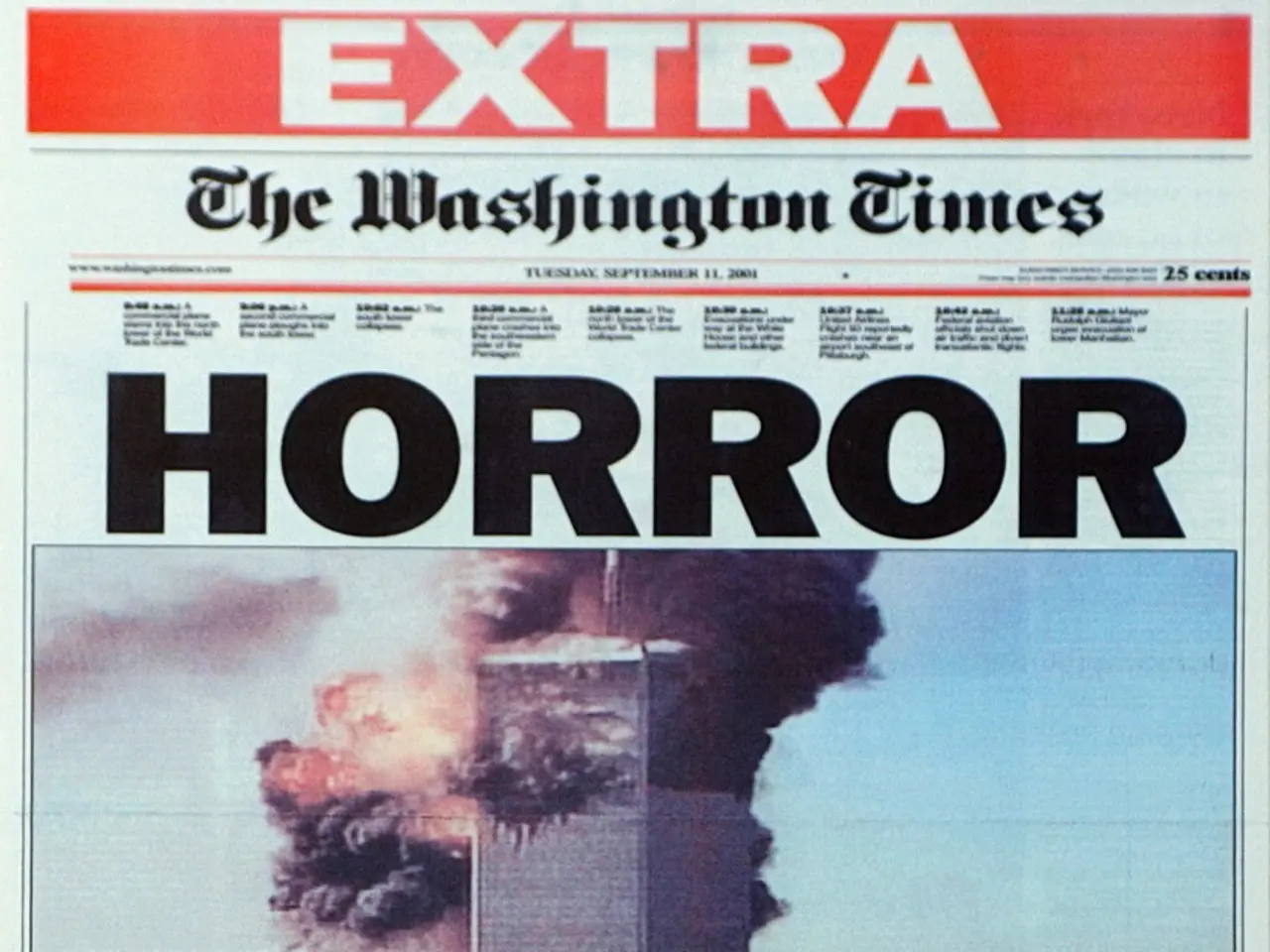Stock Market Yields in Anticipation of Enforced Restrictions
Moscow Exchange Index Faces Cautious Downward Trend in Early August
The Moscow Exchange Index (MOEX) is currently experiencing a cautiously negative outlook in early August 2025, as geopolitical risks, the dividend season, and upcoming economic reports weigh on its performance.
The index slightly declined to around 2728 points on August 1, 2025, marking a 3.10% drop over the past month and a 5.90% decrease compared to the same time last year. Analysts anticipate a further decline, with a forecast of 2651.86 points by the end of Q3 2025 and a potential drop to 2433.83 in the next 12 months.
Geopolitical tensions, particularly those related to ongoing Russia-Ukraine conflicts and stalled diplomatic talks, continue to cast a shadow over the market. These tensions contributed to a 1% drop in the MOEX index around late July, putting pressure on major stocks like Gazprom and Sberbank. The ruble also weakened as export revenues declined, leading to increased currency volatility.
However, global investors do not believe that new restrictions will significantly impact Russia's main export, oil. Despite this, the dividend season presents a mixed factor for the market. While dividends usually attract long-term investors, current weak corporate earnings, combined with high inflation and tight monetary policy, limit positive momentum.
The Russian Central Bank recently cut its key rate from 20% to 18% to ease some economic pressure, but it maintains a tight monetary policy stance to control inflation, which is expected to remain above target in 2025 before declining in 2026. This cautious stance could suppress economic growth prospects and thus equity valuations in the near term.
Economic reports indicate slowing domestic demand and moderating inflation growth, but with some inflationary pressures still present due to adjustments in utility tariffs and other factors. This environment implies limited short-term upside for equities.
The peak drop in the MOEX index was twice as large, reaching a significant decline. The index decreased by 4% by the end of July, and it is currently being held up by the 2700 point level, which serves as a strong support line.
The further dynamics of the market will be determined by the severity of potential sanctions from the U.S. President Donald Trump on Russia, according to Yaroslav Mushtakov. Some analysts, such as Natalia Milchakova and Natalia Malykh, believe that the publication of Q2 reports for individual stocks, the preliminary assessment of Russia's GDP for Q2 2025, and July inflation dynamics may affect the entire market.
Speculators may start buying stocks in anticipation of Donald Trump's verdict. Historically, the stock market has closed the last month of summer with a decline only once in the last 10 years (in 2024).
Large dividends from Sberbank, Transneft, Rosneft, and Surgutneftegas will be credited to investors' accounts and may be used for new stock purchases, primarily for heavyweight Sberbank and Transneft. However, reluctance to buy sagging stocks is largely linked to the vacation season, as many investors prefer to relax instead of shuffling their mid-term portfolios during this period.
Now that the dividend season has ended, the market will no longer be affected by ex-dividend dates. Despite the diverse opinions among analysts regarding the direction of the stock market in early August, it is clear that the MOEX faces continued downside pressure due to geopolitical tensions, cautious corporate earnings amid high inflation and tight monetary policy, and weak export-driven ruble performance. A correction of the Moscow Exchange Index to 2650 points cannot be ruled out.
In the current economic climate of early August 2025, investors are cautiously considering their moves within the stock-market, with the Moscow Exchange Index (MOEX) showing a potential decrease.
Amidst geopolitical risks, the dividend season, and upcoming economic reports, analysts forecast a drop in the MOEX index, predicting a decline to 2651.86 points by the end of Q3 2025 and a further drop to 2433.83 in the next 12 months.




